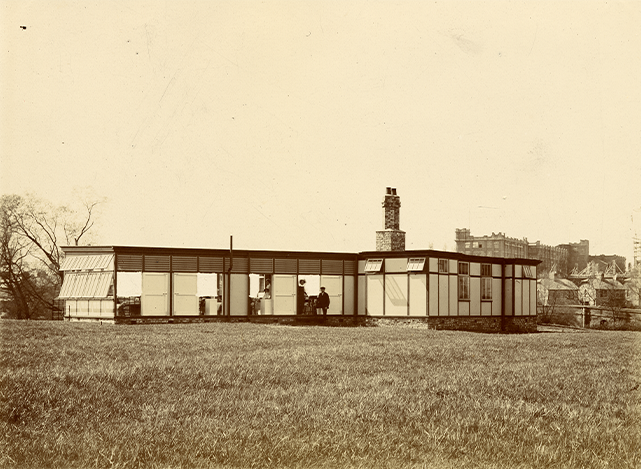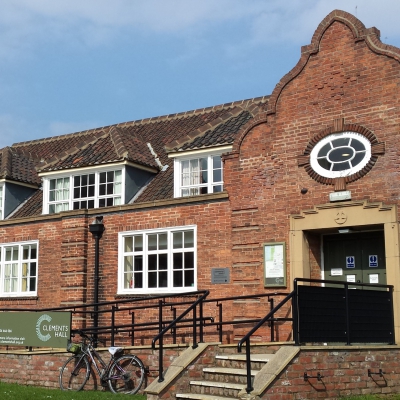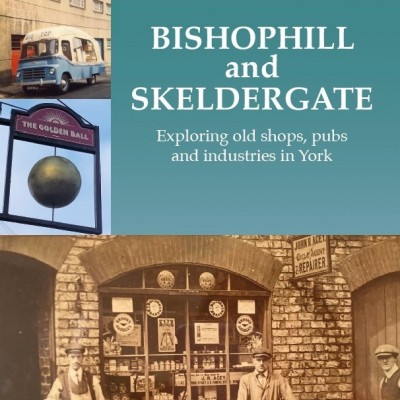You are here: Home > Blog > Rowntree, York, and the 1918 flu pandemic
15th March 2021
Rowntree, York, and the 1918 flu pandemic
Our next Zoom talk, on Friday 26 March at 7.30pm, features our member Catherine Oakley, who is Executive Director of the Rowntree Society.
Please note due to high demand we have arranged an extra date for this talk, on Friday 16 April at 7.30pm.

Rear view of an open-air ward at the York Fever Hospital in the 1910s. As cases of the 'Spanish flu' mounted in the city, existing patients were transferred elsewhere and it became an influenza hospital. The Rowntree 'Cocoa Works' factory on Haxby Road can be seen in the background. Source: City of York Council/Explore York Libraries and Archives Mutual Ltd.
In mid-June 1918, people across the UK began to fall sick. An article in the Yorkshire Evening Post described the signs of the spreading illness for readers fortunate enough to have escaped infection so far:
"the first symptoms…are an attack of aches and pains all over the body, along with dizziness. Then follow headache, pains in the back, and occasionally sickness, with a feeling of absolute helplessness."
(from “Influenza Plague Still Active”, Yorkshire Evening Post, Wed 3 July, 1918, p.3.)
As the ‘Spanish flu’ spread throughout the population, it generated large-scale disruptions to patterns of everyday life, which had already been transformed by the turmoil of the First World War. However, despite the scale of disruption to everyday life and the huge global death toll, the 1918 flu has not been extensively explored by historians, and there are few studies of its impact at the level of local histories.
In this talk, Catherine will share questions and findings from her early research into York’s experience of the Spanish flu. Her particular focus is the history of the Rowntree family and company in York. Joseph Rowntree and his sons Benjamin Seebohm and Arnold made significant contributions to public health in the city during their lifetimes in local and national politics. How did they respond to the pandemic? What impact did the virus have on Rowntree workers in York and abroad? How was the outbreak experienced among residents in the city, and in vulnerable communities such as those identified in Benjamin Seebohm Rowntree’s pioneering study of poverty in 1901?
These medical, civic and philanthropic histories feel newly relevant in the context of the Covid-19 pandemic, as national and local authorities continue to coordinate responses to the outbreak, health workers seek to protect and support those most at risk, and the government relies on an expanded welfare state to keep the country afloat.
How to join this talk
We're pleased to report that we're experiencing high demand for this talk. Our Zoom limit is 100, and so Catherine has kindly agreed to add an extra date for guests who have not already booked a place. she will be repeatingit on Friday 16th April at 7.30 pm.
Members
If you have already joined our group and paid for the 2021 talks, we will send you an invitation link for the March date soon.
If you are a member who has not paid for talks already, the cost is £1 via PayPal here, to book a ticket for the March (or April) date.
Guests
If you have already booked as a guest for the March date then you will get the link.
If you would like to book for the new April date please use the PayPal link here.
If you would like to join the group as a member or if you have any queries please contact clemhallmembership@gmail.com




